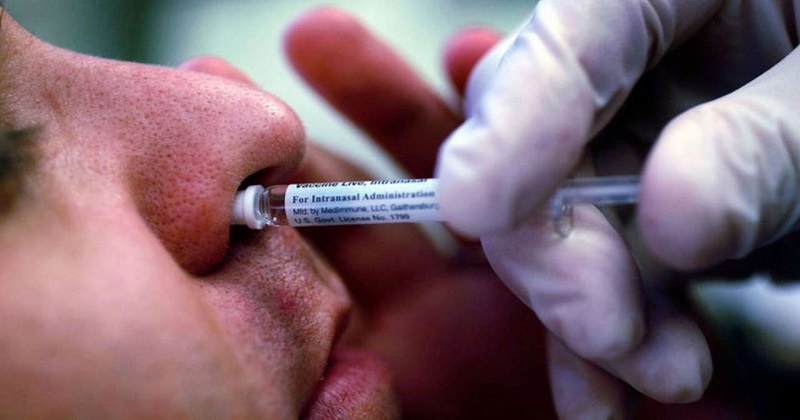
Federal health authorities assume that intranasal vaccines for covid 19, given through the nose instead of muscles, can be a possible gamechanger in India’s battle on the coronavirus. The nasal vaccine is distinctive from two intramuscular vaccines which newly got permission, as it is non-invasive, needle-free, doesn’t need prepared healthcare workers, excludes needle-associated hazards, befits children and adults, and has scalable production.
Studies have that the clinical effectiveness of the intranasal vaccine is higher than that of the injectable vaccine. In India, Hyderabad-based Bharat Biotech has asked the Drugs Controller General of India’s (DCGI) permission to administer clinical examinations of its nasal vaccine for coronavirus. Last month, Pune-based Serum Insititute of India and Codagenix Inc had declared that they have got administrative consent in the United Kingdom to start an early-stage analysis of their single-dose, intranasal coronavirus vaccine.
“At the moment, four vaccines are undergoing phase 1 and 2 of nasal vaccine trials in the world. It can be a gamechanger but it all depends on whether it is safe and effective,” said Lalit Kant, ex-chief of epidemiology and contagious illnesses at the Indian Council of Medical Research (ICMR). Alluding to the benefits of the nasal vaccine, he stated that its administration does not need syringes, and it is easy to conduct, transport, and store. “You can immunize a larger number of people in a small amount of time. There would be no need for people to come back for a second dosage,” the epidemiologist said.
According to Bharat Biotech, an intranasal vaccine incites a widespread resistant reply at the site of infection, in the nasal mucosa, which is necessary for hindering both infection and transmission of Covid-19.” Intranasal immunization can generate an immune response in the nose, which is the aim of approach for the virus-thereby defending against disease, infection, and transmission,” the firm said.
Anish Sinha, Associate Professor at the Indian Institute of Public Health, said that intranasal vaccine can be a gamechanger, especially in nations that have logistical problems. “The efficiency of the administration will be the biggest advantage. It can be used in larger numbers with minor operational trials,” he replied.

Post Your Comments